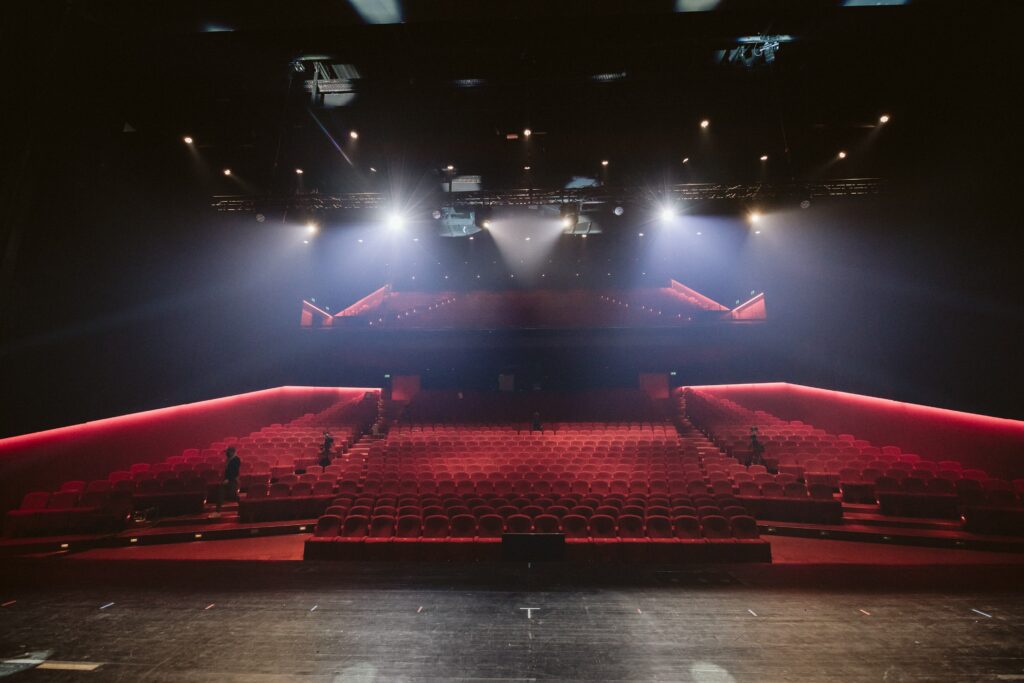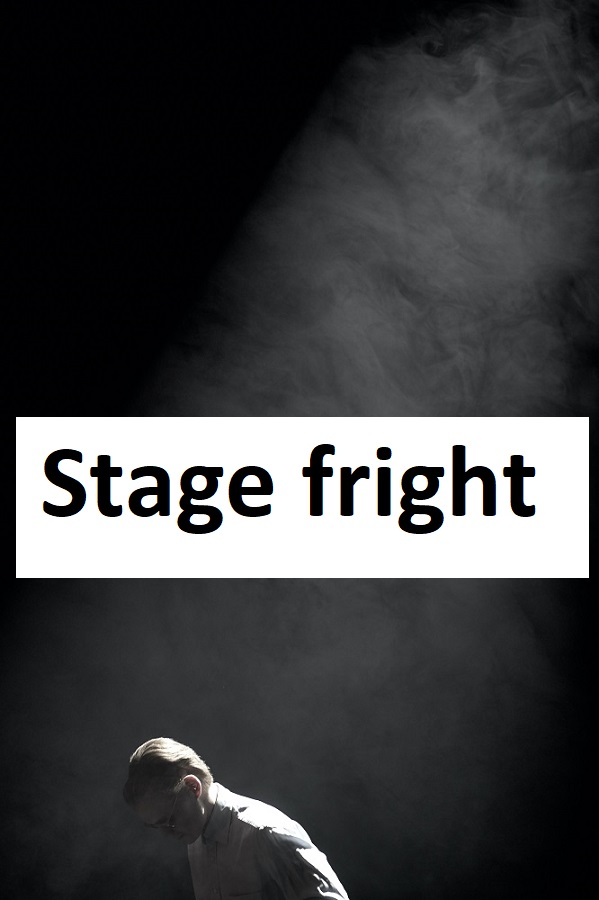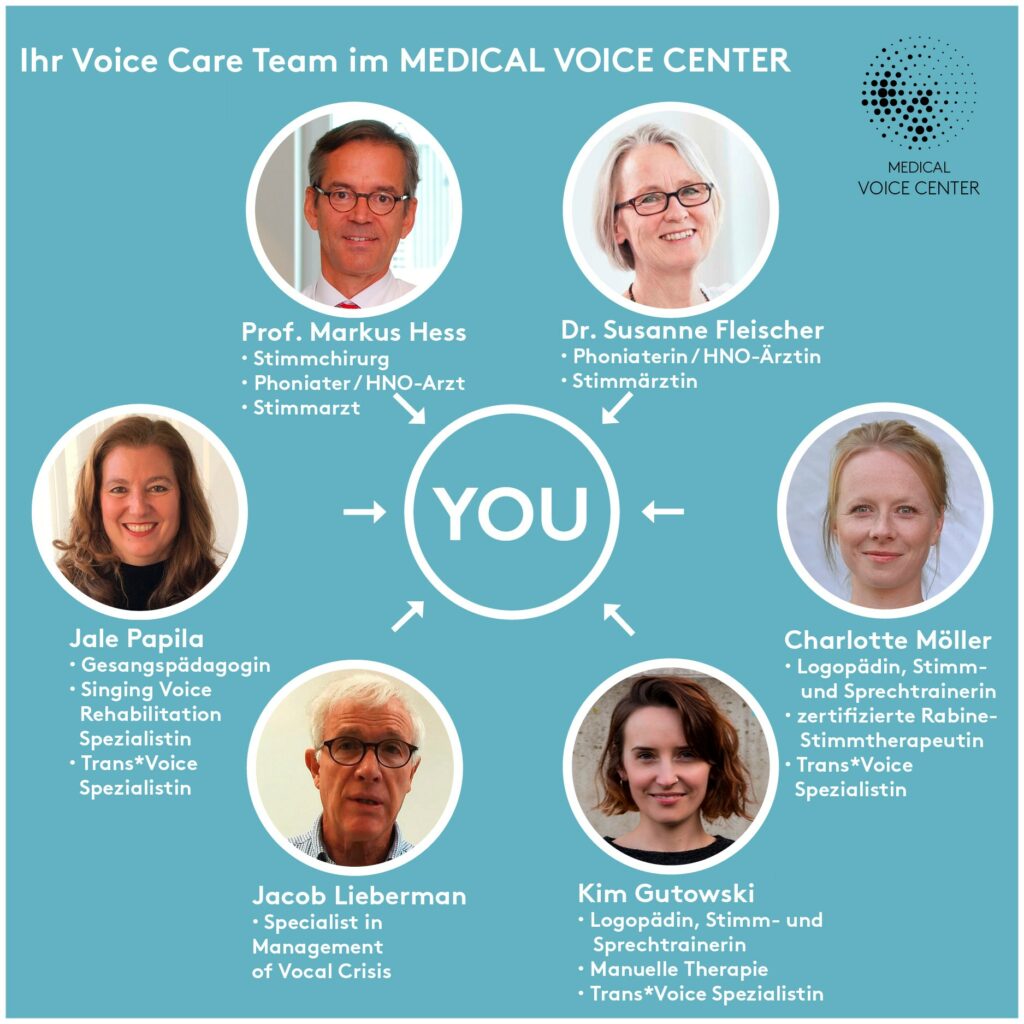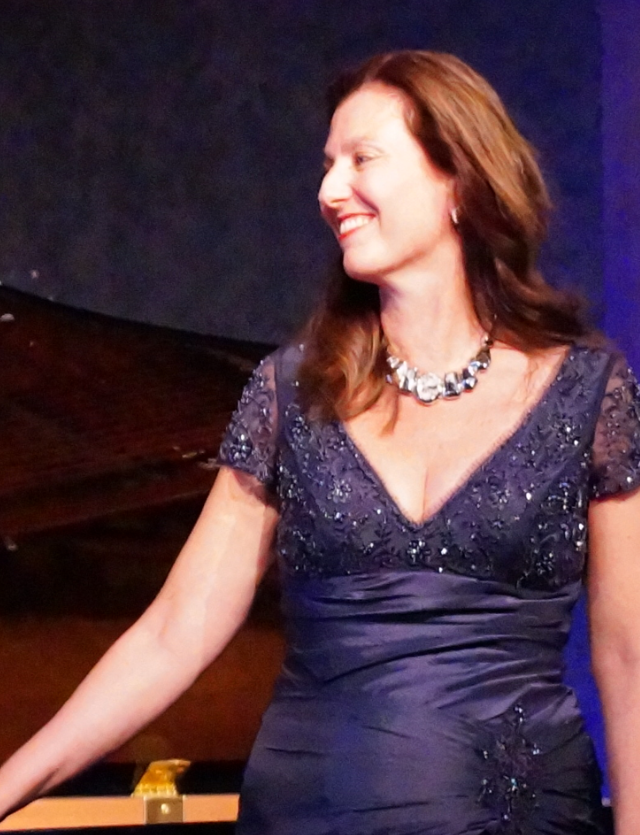When the voice no longer responds as it should
Many singers are constantly afraid of their voice.
When singers develop a disorder or disease of the singing voice (dysody) and lose the feeling for their voice as a result of this disease, they need highly competent support. The treatment and care of the professional singing voice are the main focus of our work. The MEDICAL VOICE CENTER is the only center of its kind to offer its patients work with a voice rehabilitation coach, who takes over the therapeutic work on the disturbed singing voice. This person is familiar with the concerns and needs of the professional singing voice as well as possible dysfunctions and their regulation. As an integral part of the multidisciplinary voice team, the opera and concert singer Jale Papila works as a singing voice rehabilitation coach with the affected singers, always at eye level. In addition to the medical, pedagogical, and therapeutic competencies, the singing voice rehabilitation coach’s professional stage experience is invaluable for the therapy.
Common Symptoms
Many singers experience:
-
Loss of range or vocal flexibility
-
Fatigue or reduced stamina
-
Difficulty with quiet singing or note onsets
-
Breaks in register (passaggio), especially in the middle or high range
-
A rough, breathy, or hoarse tone – especially after singing
-
Physical discomfort: throat tightness, pressure, or pain
-
Mucus, frequent throat clearing, or a “sung-out” sensation
These symptoms may indicate a functional disorder (dysody) or, in some cases, organic changes like cysts, nodules, or hemorrhages. Left untreated, functional issues can worsen or become structural.
Performing Artist Support Center
At the Voice Center, we understand the importance of your voice. For professional singers, the MEDICAL VOICE CENTER offers a unique service. Through the multidisciplinary team, we ensure that their most valuable tool, your voice, receives the best possible treatment. This includes advice on singing technique, performance, as well as the health and hygiene of the voice (both physical and emotional) and also the transfer back to the stage in everyday life.
In the world of professional singing, it is often conveyed that only those who are vocally resilient and healthy can succeed in this profession. Vocal injuries, however, unlike injuries in high-performance sports, tend to be seen as a stigma. As a result, the affected singers usually do not dare to talk openly about their voice problems for fear of a negative impact on their singing career and confront their worries with themselves.
They are often left alone with their fears and thoughts that there might be „something bad“ with their voice and whether voice surgery might be necessary – the inner tension grows.
Unique: Voice Rehabilitation Coaching
As a former opera and concert singer with stage and pedagogical expertise, Jale Papila understands the challenges professional singers face – vocally and emotionally.
She guides singers through:
-
Voice crises
-
Post-operative recovery
-
Return-to-stage programs
-
Tour preparation
-
Performance coaching
Her work bridges medical treatment and real-world performance demands, ensuring that rehabilitation translates back to the stage. Collaboration with your personal voice teacher is always encouraged.
The high vocal load of professional singers leads to overstrain
The vocal demands on professional singers in their everyday professional life are very great. Unlike most other professional voice groups, they not only use their voice for their profession, but their voice represents their profession. Thus, professional singers depend on an unrestrictedly functioning, healthy, and powerful voice to reliably perform their profession.
Almost all professional singers are confronted with the fact that their voice is no longer fully functional temporarily or over a longer period in the course of their career. The high vocal and physical stress in this profession increase the likelihood of overstraining the voice: performances and rehearsals often have to be mastered within a short time – not infrequently in different parts, at changing locations under difficult acoustic conditions. Often the performance also includes dancing and speaking. It is not always possible to cancel a performance in the event of an infection, even if the voice is not fully capable. As a rule, everyone has a good regeneration system that allows the voice to recover with sufficient rest. However, if voice complaints do not subside despite sufficient rest or if the voice needs more and more time to regenerate, these singers need help.
Consult a doctor immediately if you suspect to have a voice problem.


Common Voice Symptoms in Professional Singers
Voice problems in professional singers often affect both the singing and speaking voice. Due to their heightened body awareness, many singers can describe these changes in detail.
Typical symptoms include:
-
Reduced vocal stamina and faster fatigue
-
Longer recovery times after singing
-
A hoarse or strained tone, especially after rehearsals or performances
-
Delayed or effortful note onsets
-
Difficulty with soft singing (piano) and dynamic control (e.g. Messa di Voce)
-
Breaks in tone, especially in register transitions (passaggio)
-
Loss of range, particularly in the upper and middle registers
-
Feeling “sung out” or that the voice is dull, rough, or “not fit”
-
A raised speaking voice after singing
Physical complaints may include:
-
Throat tightness, pressure, or pain during/after use
-
Excess mucus and frequent throat clearing
-
Increased vocal effort and reduced endurance
These signs often point to a functional voice disorder and should be assessed early to prevent long-term issues.
Our Services for Professional Voices
-
Singer Check-Up
-
Post-operative voice check-up
-
Rehabilitation after vocal injury or surgery
-
Back-to-Stage Program
-
Tour support
You don’t have to go through a voice crisis alone. We’re here to support your return to full vocal strength – on stage, in rehearsal, and beyond.


In many cases, the symptoms described point to a functional voice disorder, known as functional dysody. This means that the singer’s usual vocal performance is no longer accessible, despite the absence of visible structural changes.
Possible Causes of Voice Problems in Singers
Persistent voice problems in singers often have multiple causes and should be viewed within a bio-psycho-social framework. Common contributing factors include:
-
Vocal overuse and intense performance schedules
-
Unfavorable working conditions (e.g. dry air, dust, poor acoustics)
-
Stress, anxiety, and pressure to perform
-
Emotional strain (e.g. grief, personal upheaval)
-
Physical issues such as infections or injuries
In most cases, these symptoms indicate a functional voice disorder (functional dysody), where the usual vocal performance is no longer accessible. This can develop gradually or occur suddenly after vocal strain.

Anxiety and the Voice in Professional Singers
When the „instrument voice“ no longer functions as expected, it often triggers a cascade of uncertainty, anxiety, and stress in professional singers. These emotional responses can lead to shallow breathing, increased muscle tension, and further impair vocal function.
The fear of not being able to reach high notes or deliver a performance can be overwhelming. In response, many singers develop unconscious compensatory strategies to maintain vocal output – which may worsen the problem over time.
Alongside the vocal issues, additional fears often emerge:
-
Fear of not meeting the high demands of the profession
-
Worry about recovery before the next performance
-
Anxiety about long-term career implications, including job loss or reputational damage
This emotional strain adds a psychological dimension to the voice problem – and requires sensitive, specialized support.
What should professional singers do?
Don’t wait – get clarity and expert support
If you’re concerned about your voice, it’s essential to seek clarity through a professional diagnosis. At the MEDICAL VOICE CENTER, you are in excellent hands with voice specialist Prof. Markus Hess.
Using painless endoscopic techniques, we examine the larynx and vocal folds in detail to identify any abnormalities. In many cases, the issue is a functional voice disorder that has not yet led to structural changes.
In such cases, targeted voice rehabilitation with our voice rehabilitation coach and/or speech therapy is recommended. Because vocal problems often go hand in hand with muscular tension in the neck and shoulders, we may also integrate manual or osteopathic therapy into the treatment plan.
If an organic disorder is diagnosed, we discuss all further steps together – always aiming to resolve the issue through conservative treatment first. Only if necessary do we consider surgical intervention.

Rehabilitation of the High-Performance Singing Voice
Professional voice users – such as singers, actors, and speakers – have unique vocal demands that require equally specialized care. Whether dealing with a functional or organic voice disorder, rehabilitation must be tailored to the specific needs of the professional voice.
At the MEDICAL VOICE CENTER, this highly individualized process is led by Jale Papila, one of the few voice rehabilitation coaches with deep expertise in the anatomy, pathology, and therapeutic recovery of the professional singing voice. A trained concert and opera singer with extensive stage experience, she combines clinical knowledge with artistic insight – working as an integral part of our multidisciplinary team, alongside phoniatrists, phonosurgeons, speech therapists, osteopaths, psychotherapists, and vocal educators.
As a voice rehabilitation coach, Jale Papila acts as the vital link between medical treatment and artistic application, ensuring that all therapeutic steps are meaningfully transferred back to stage practice. She regularly lectures at conferences and maintains close collaboration with medical and therapeutic colleagues.
Our therapies for professional voices
Jale Papila – Voice Rehabilitation Coach
With empathy, expertise, and firsthand knowledge of the professional stage, Jale Papila supports you throughout your vocal recovery journey. From diagnosis to full reintegration into performance life, she provides confidential, personalized, and artistically grounded guidance.
Rehabilitation with Jale Papila is not a substitute for your personal voice teacher. On the contrary – we welcome and encourage collaboration with trusted vocal coaches wherever possible.


